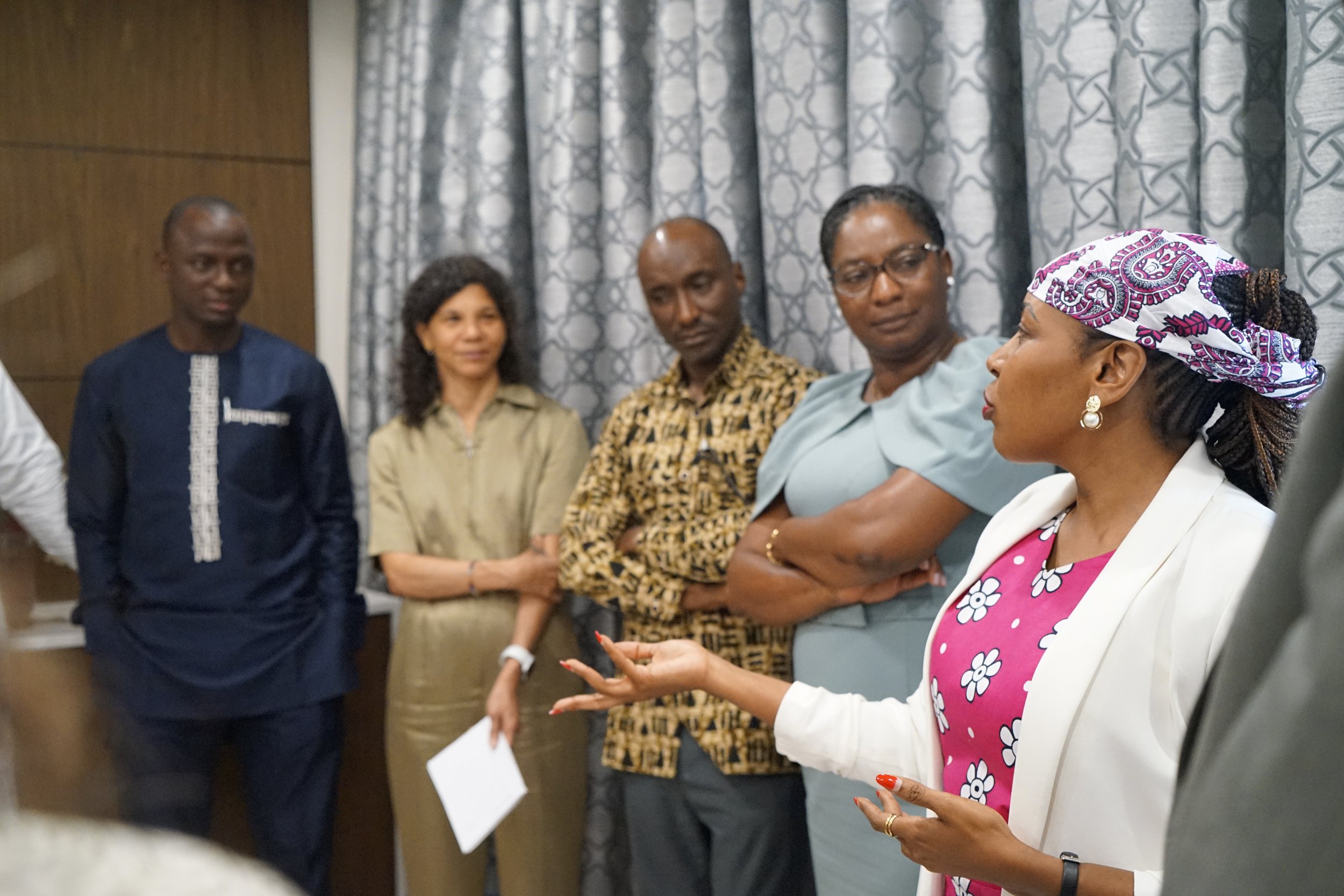African Parliamentarians for Change: IPPFoRB UPR Workshop in Accra
The International Panel of Parliamentarians for Freedom of Religion or Belief UPR Workshop: The Role of Parliamentarians
The International Panel of Parliamentarians for Freedom of Religion or Belief (IPPFoRB) had a workshop in Accra, Ghana this November. The workshop aimed at equipping Members of Parliament (MPs) across Africa with the tools to better address issues related to Freedom of Religion or Belief (FoRB) within their countries. This event was jointly organized with the African Centre for Parliamentary Affairs (ACEPA) in Ghana.
Participants from seven countries across Africa
Photo: Amanda Barth Gulbrandsen /IPPFoRB
The workshop brought together parliamentarians from seven African countries, and provided in-depth training on the Universal Periodic Review (UPR) process. The UPR is a mechanism of the Human Rights Council where UN Member States undergo a peer review of their human rights records.
Through the UPR process, MPs can directly influence their governments to take concrete actions to protect FoRB, whether by addressing religious discrimination, protecting religious minorities, or enhancing legal frameworks that safeguard religious freedoms.
The primary goal of the workshop was to equip MPs with the knowledge and skills to effectively leverage the UPR process to highlight issues related to Freedom of Religion or Belief in Africa. With this workshop, IPPFoRB aims to strengthen the role of parliamentarians in advancing the right to freedom of religion or belief, a fundamental human right that remains under significant pressure worldwide.
During the two-day workshop, MPs from Ghana, Malawi, Nigeria, Sierra Leone, South Africa, Tanzania, and The Gambia came together to learn about the UPR process. UPR Info facilitated the training, and the MPs gained tools to advocate for the protection and promotion of FoRB in their countries. The workshop included discussions on how to collaborate with stakeholders. Mercy Larbi, Deputy Commissioner of the Commission on Human Rights and Administrative Justice (CHRAJ) in Ghana, shared the commission's progress on human rights issues. The participants engaged in discussions, shared valuable insights from their experiences on the challenges and opportunities they face working with FoRB.
Contextualizing the IPPFoRB UPR toolkit
A crucial aspect of the workshop was also to contextualize the IPPFoRB UPR toolkit to better suit the specific challenges faced by African countries. The toolkit, which serves as a practical guide for parliamentarians to engage with the UPR process, was discussed in detail, with participants offering their perspectives on how it could be adapted to the diverse religious and cultural landscapes across Africa. The contextualization of the IPPFoRB UPR toolkit aims to further the FoRB efforts in the region.
Photo: Amanda Barth Gulbrandsen /IPPFoRB
Advocating for change
On the final day of the workshop, the MPs created action plans aimed at addressing FoRB issues in their respective countries. These plans included specific goals, strategies, and timelines to advocate for change.
Parliamentarians play a powerful role in holding governments accountable for upholding human rights. The IPPFoRB workshop in Accra is just the beginning of a broader regional effort to strengthen the role of African parliamentarians in advocating for FoRB.
Photo: Amanda Barth Gulbrandsen /IPPFoRB



